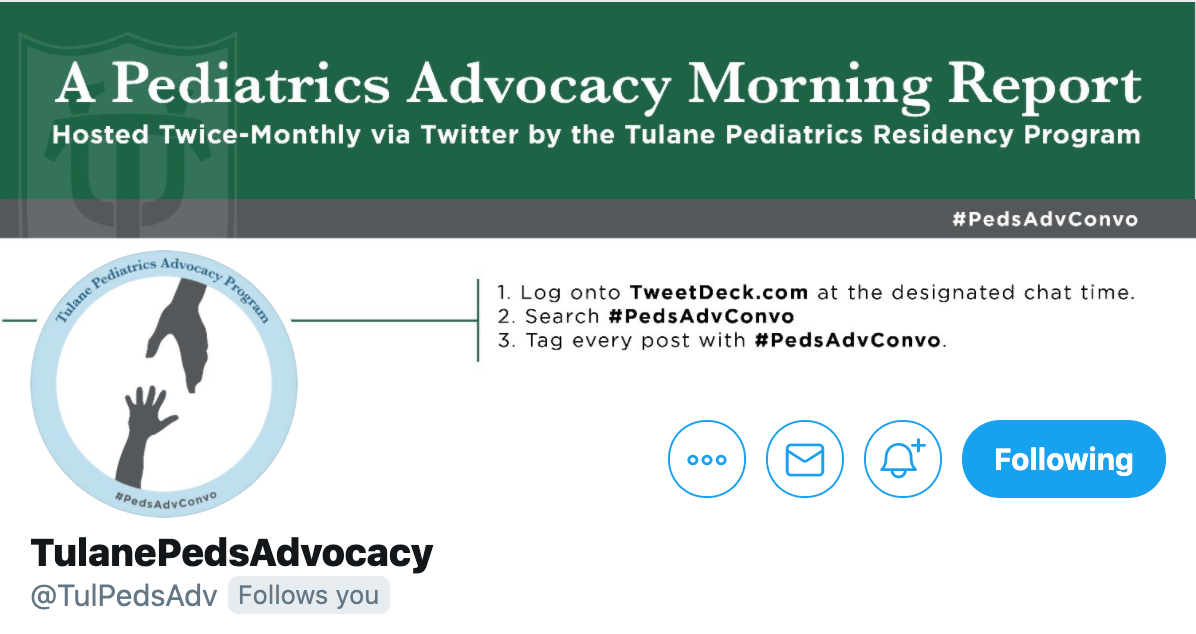Monday Morning Report, conducted by the Chief Residents at Tulane and by several dedicated Tulane faculty members, is held weekly from 8:00 to 9:00 am at Manning Family Children’s. Residents on Manning Family Children’s rotations are required to attend. Advocacy Morning Report occurs twice a month and includes a conversation with Pediatricians around the world through our advocacy Twitter page @TulPedsAdv. These advocacy sessions focus on journal article review, urgent legislative action, and preventive pediatrics. Advocacy is integral to everything that we do as pediatricians. We value this forum as a means to discuss how to better advocate for our patients both with our Tulane family and with Pediatricians on Twitter.
Our Monday Morning Reports alternate between Advocacy Morning Report and Case Conference. Case Conference is an interactive case-based learning experience derived from a recent admission/presentation to the wards, PICU, ER, or clinic. An intern or resident presents each case, which is an opportunity for us to discuss how to think actively about taking a relevant history and performing an effective physical exam. After this, we build a differential diagnosis and discuss best strategies for workup and management.Read More
The discussions are geared toward one of the primary educational goals of the program: Fostering critical thinking. We don't just want you to know what questions to ask, or what you're supposed to do in a given situation; we want you to know why - it is at that point that you have gained knowledge that is truly a tool rather than a paperweight, because it is something that you can apply as a principle in other settings.
Toward this end, "why" informs all aspects of Case Conference. Why did you want a particular detail from the history - what was the clinical thinking that made you think that would be useful? Why are you interested in a particular exam finding? What is the underlying method that informs how you assemble a differential diagnosis for a given complaint? And why do you want a particular laboratory or imaging test - what information will it give you, and why is it worth adding to the cost of care? More importantly, why is it important enough to justify additional discomfort for your patient? Since our patients (at least the preadolescent ones) are not the ones giving consent for interventions, it should be a matter of honor to us that we force ourselves to ask this particular "why," in the pursuit of the least invasive and painful medical experience safely possible.

